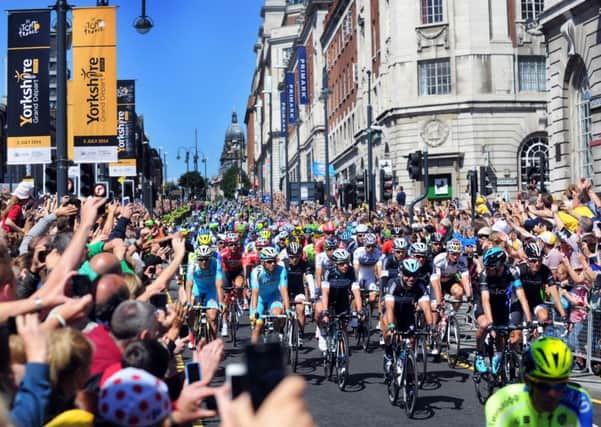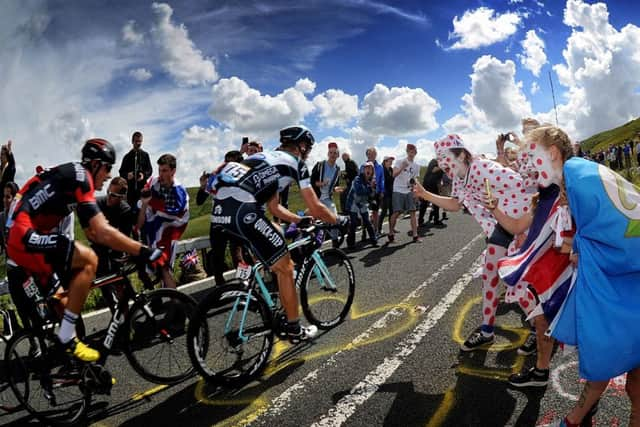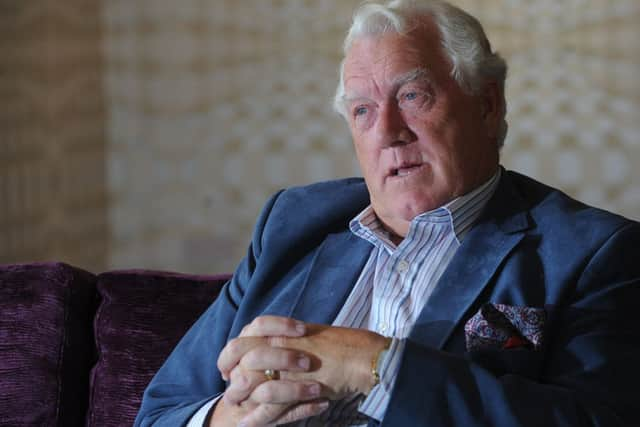Tour de France boost ‘£50m greater than anticipated’


Sir Rodney Walker, who was chair of the now-disbanded Government company TDFHUB2014 Ltd, has claimed early reports indicate that Le Tour has boosted the Yorkshire economy by £150m, surpassing the original £100m estimate.
Ahead of the release of TDFHUB2014’s final report later this year, the 71-year-old Yorkshireman revealed the information during an exclusive question and answer session held by Barclays and Armstrong Watson at The Leeds Club, in Leeds, today.
Advertisement
Hide AdAdvertisement
Hide AdSpeaking publicly for the first time about the Grand Depart’s impact, Sir Rodney also said that he believes that a number of Yorkshire local authorities overspent on delivering the spectacle, although overall the staging of the race is likely to come in more or less on budget at around £27m.


The event, dubbed ‘the grandest ever Grand Depart’, brought 2.8m people to the streets of Yorkshire to get a glimpse of the world’s best cyclists on July 5 and 6 before a further 1m spectators ventured out for the Cambridge to London stage three on July 7.
“We really genuinely thought the inward investment into Yorkshire justified the outlay,” Sir Rodney said. “The early research we have done has indicated we underestimated by a factor of 50 per cent the economic impact. I’m being told it’s near £150m.”
The news may come as no surprise to many after the race captured the imagination of a global TV audience and led to Yorkshire hotels and B&Bs reporting a surge in bookings, while businesses cashed in on the county’s boost in profile.
Advertisement
Hide AdAdvertisement
Hide AdSir Rodney said: “There are all sorts of legacies emerging from the event itself. The most important thing was the decision by Welcome to Yorkshire to bid for the event. The publicity the event got both nationally and globally and the fact that the event is generating far more inward investment than we had originally hoped for justifies the fact that £27m of public money went into the running of it.”


And although the final figures are yet to be released, Welcome to Yorkshire are also pleased with the impact the event has had.
Welcome to Yorkshire chief executive Gary Verity, who led the bid for the 2014 Grand Depart, said: “We’re absolutely delighted the event brought so much money to the county to help businesses big and small, and there are benefits for the county which are impossible to measure – the profile of Yorkshire around the world has never been higher.”
Sir Rodney, who is a former chairman of UK Sport and Sport England, played a pivotal role in organising the logistical side of Le Tour’s visit by heading up TDFHUB2014, which controlled £10m of Government funds.
Advertisement
Hide AdAdvertisement
Hide AdLocal authorities in Yorkshire contributed £11m on top of the £6m footed by Transport for London for day three of the Grand Depart in Le Tour’s 101st year, bringing the total budget for the first three stages of the 2014 Tour de France to £27m.
Stage one saw the likes of Mark Cavendish and Chris Froome cycle from Leeds to Harrogate via the Dales, before the York to Sheffield stage two and Cambridge to London third stage.
Speculating about the final spend, Sir Rodney revealed he initially feared that the Government’s £10m investment could have left organisers as much as £2m short.
“In the end we came up with three-quarters of a million spent under but I do know a lot of the local authorities overspent,” he said. “But I have a letter from the Government saying we could give the money back to the local authorities to offset what they overspent.
Advertisement
Hide AdAdvertisement
Hide Ad“My guess and instincts are that overall it wouldn’t be far away from coming in on its original budget, some areas were a bit under and some were a bit over.”